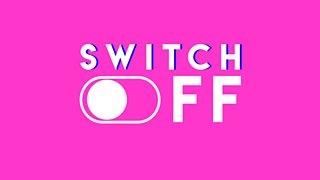5 things we learned when these celebs switched their social media off
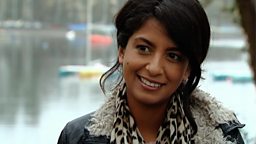
For many, there are times when social media feels at best like a time sink, at worst like a trap. "Why am I still here?" you think as you continue to scroll through an anxiety-inducing Twitter timeline or dole out likes to friends living their best lives on Instagram.
Yet few of us can ever manage to properly quit it: there's always some benefit - a news event to catch up on, new work to promote, our own best lives to show off - that hooks us back in.
For Konnie Huq, the only way to get her guests for her new podcast Switch Off was to set them a challenge: social media cold turkey for a week.
Some of them couldn't even manage that - notably Huq's own husband Charlie Brooker. But after a week of digitally detaching, there were some recurring themes in what they all discovered, both about themselves and about the nature of social media.
1. The publishing industry should campaign for a social media shutdown
Who was the greatest beneficiary from the guests' week offline? Well, you could argue Shappi Khorsandi's children - the comedian and author laughingly notes that she's become a "better mother".
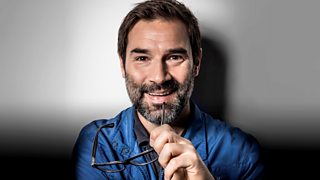
For Adam Buxton, there was a significantly increased consumption of biscuits
But a common upshot for most of the guests is that, instead of reading the internet, they're reading books instead.
Khorsandi, fellow comedian Adam Buxton and author Adam Kay have all been devouring words on paper just like in the old days. It's perhaps no surprise, either, that all three sheepishly admit to being more productive work-wise without the distracting temptation to procrastinate via a "quick glance" at Twitter.
But where there's a will to put work off, there's a way. And for Buxton, that turned out to be a significantly increased consumption of biscuits. It turns out that a social media detox isn't all virtuous.
2. Social media nostalgia: it’s not like it used to be…
Twitter is now "exhausting and antagonistic", sighs Kay - not like in the old days of the app, which he remembers as a couple of hundred like-minded people telling jokes and chatting.
Indeed, the Mrs Brown's Boys writer met his husband James thanks to the smaller, cosier circle of Old Twitter. While Khorsandi also says that she's made "real friends", both in and out of showbusiness, through those early, friendlier days.
What's changed? Kay compares the platform to "one big comments section" of an online news site now. After posting about any contentious issue, Kay finds he is unable to use Twitter for a good 48 hours afterwards, and has no desire to know how people have responded. Khorsandi, meanwhile, regrets the inability to have a nuanced conversation: "The sanctimonious people pour in, and then the racists also do," she sighs.
Kay doesn't absolve himself, admitting that he now only seems to tweet when he's angry, but for Khorsandi the fundamental issue is that the platform dehumanises people, turning isolated actions into the sum total of who they are.
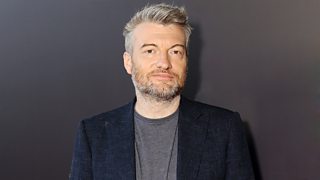
However, one guest who finds he cannot in all good conscience look back on the early days of Twitter with rose-tinted glasses is Charlie Brooker.
The Black Mirror creator compares the platform to "a pub at closing time that could go either way" in 2019.
But he happily admits that in its supposed golden era, he used to be a full-on troll who posted controversial opinions purely to rile other people up.
3. Social media can have positives - but there are always two sides of the coin
As much as there's consensus among the guests that social media is, in many ways, bad for them, there's also an understanding that it can have serious benefits.
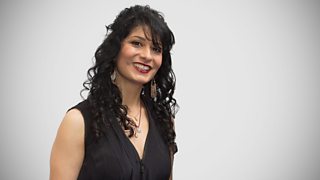
"I was put straight by compassionate people who educated me"Shappi Khorsandi
For comedian and writer Deborah Frances-White, the current selfie trend represents women reclaiming control over their image from the male gaze. And she says that a decade spent reading what other people have to say on Twitter has made a more proactive person.
While Buxton talks about the knot of anxiety that accompanies the fear of criticism, Khorsandi is thankful for being called out - in a kind way. "I had ignorantly told transphobic jokes," she divulges. "I was put straight by compassionate people who educated me."
Khorsandi is also heartened to see the proliferation of openness about mental health issues, particularly among a younger generation of comedians, noting that such honest talk could have helped her at that age.
Actor, rapper and podcaster Scroobius Pip warns, however, that social media can foster an illusion of community that could prove damaging to a user's mental health. "We don't realise we're lonely because we have thousands of 'friends'," he says – but what happens when none of those people notice when you really need help?
4. Maybe the problem is the platform?
It's easy to cast "social media" as the villain. But what makes social media uniquely harmful? Why has it changed over the years - and is this a change that only British media personalities of a certain age feel?
Khorsandi and Kay both pinpoint a toxic cycle of popularity with Twitter, which validates users by the number of followers they have and encourages them to acquire more.
Those with a ready-made fanbase can easily get sucked in: "The more followers you have, the more likely you are to get the hit of a response," observes Khorsandi. But at the same time, points out Kay, this same flood of responses is what can make the platform anxiety-inducing and plain unusable.
Brooker - who is still ever-present on Twitter these days, though mostly as a lurker - blames the algorithms. Social media is more complex than it used to be 10 years ago, and can now second-guess its users by nudging them towards subjects it thinks they're already interested in - which can be unhealthy on a number of levels
5. Humanity hasn't evolved to use social media well yet
Social media has taken over so rapidly that it's easy to forget how new it is - and how we're all still processing the best ways to use it.
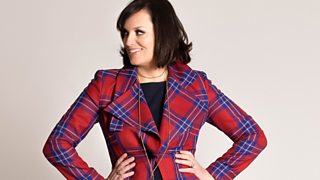
Scroobius Pip compares the internet to civilisation's first cities, built without town planning before anyone knew what the risks could be. Consequently, without knowledge of the need for sewage systems, disease and sickness was rife within weeks.
Frances-White, meanwhile, draws an analogy between the Victorians' attitude towards newly invented cars: they would go "motoring", where the pastime was simply driving without purpose, something few would choose to do now. White says that this is similar to mindless websurfing these days, as opposed to the intentional activist use of social media as a tool for getting things done that she sees among the younger generation.
Khorsandi agrees that the young people she meets have healthier social media habits: it's her own peers who find it hard to log off, whereas younger people make more of an effort to socialise in real life.
Opinion is divided amongst the guests on whether social media is a net positive or negative.
So appropriately, it's Brooker who wraps the series up by calling it a neutral, much like the printing press. Social media is simply a tool that humans can use in any way they choose - and the reasons it is getting worse to use are to do with capitalism's obsession with growing everything all the time. Maybe, suggests Brooker, it's not that social media is making the world worse - but that the world is making social media worse.
-
![]()
Switch Off with Konnie Huq on 91热爆 Sounds
Listen to Charlie Brooker, Deborah Frances-White, Scroobius Pip and more share what they learned from going off social media for a week.
